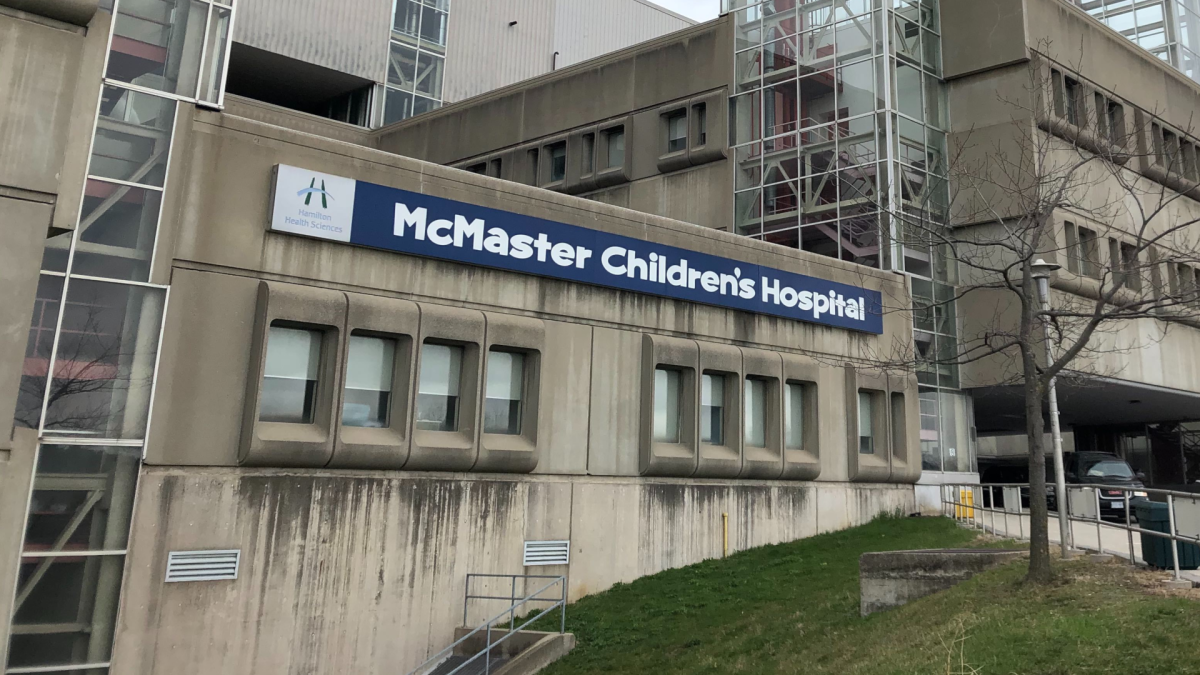The head of pediatric surgery at McMaster Children’s Hospital (MCH) says difficult decisions are being made daily amid increasing strain on operations spurred on by a surge in viral illnesses and staffing pressure.

In an update on Tuesday, Dr. Devin Peterson said discussions continue on adjusting daily surgeries, which have seen activity diminish to as few as one a day and fewer than five a week, down from the typical 15 operations or more a week.
“Even today, we had to switch a patient out,” Peterson said.
“The decision was on Monday whether we did a patient that had a tumour or we did a patient who might lose bladder function. These are sort of decisions we’re making.”
Peterson says in addition to a bed shortage, the facility has been exceeding its supply of infusion pumps, cribs and other equipment associated with general child care.
He says the hospital has resorted to “out-of-the-box” ideas in recent times to continue the flow of important surgeries, including same-day home surgeries that don’t require hospital admission.
The hospital reported occupancy of 130 per cent on Tuesday within inpatient pediatric units, with 15 patients still in the emergency department (ED) awaiting transfer, held up by a lack of “staffed and vetted” spaces.
“Our ICU (intensive care unit) was on the Level 3, so the most specialized in advanced ICU beds for the sickest of care of kids … were running at 109 per cent,” MCH president Bruce Squires said.

Get weekly health news
Squires says the network is working with regional pediatric hospital partners across southern Ontario to ensure “optimal use” of available capacity.
As of Tuesday, he said the wait time for some kids looking for a move from the emergency department to a bed in a ward was as much as 24 hours.
He revealed McMaster is preparing a plan to transfer teens, specifically 16- and 17-year-olds, to Hamilton adult hospitals for surgeries.
“The Juravinski Hospital would support general surgery, plastic surgery and urology surgical cases, while the Hamilton General Hospital will support … orthopedic, trauma and EMT cases,” Squire explained.
Late last week, the pediatric hospital said close to 200 kids were arriving in emergency per day, pushing the occupancy rate to 140 per cent, about 20 per cent higher than the average for October.
Squires explained that the rate means additional funding is required from the province when over 100 per cent due to the additional spaces needing to be staffed.
The Ford government has directed $1.3 million for expansion as part of an initiative announced last week to move pediatric capacity to 150 per cent, with a reduction in planned surgeries at most pediatric centres to create capacity.
Dr. Angelo Mikrogianakis, chief of pediatrics at MCH, says respiratory illnesses typically create a surge for acute pediatrics within city hospitals to the tune of 40 patients per season in regular times.
With the advent of a season featuring COVID-19, respiratory syncytial virus (RSV) and the flu combined, Mikrogianakis says those numbers have shot up to around 75 to 80, creating a scenario he characterizes as “three winters combined into one.”
“So the winter surge of 2020, that never happened. The winter surge of 2021 didn’t happen. Now the winter surge of 2022, the young children that haven’t seen these viruses before … are all getting sick at the same time,” said Mikrogianakis.
Mikrogianakis says the best preventive strategy for parents to avoid illness is getting influenza and COVID-19 vaccinations as well as using masks indoors.
When a child does feel sick, he says to make sure they’re being assessed and cared for before seeking aid via a hospital.
“Our request would be that families explore the appropriate level of access in the health-care system to get their child assessed,” Mikrogianakis said.
“So your family physician, your family medical team … your community resources (and) urgent care centres.”














Comments
Want to discuss? Please read our Commenting Policy first.